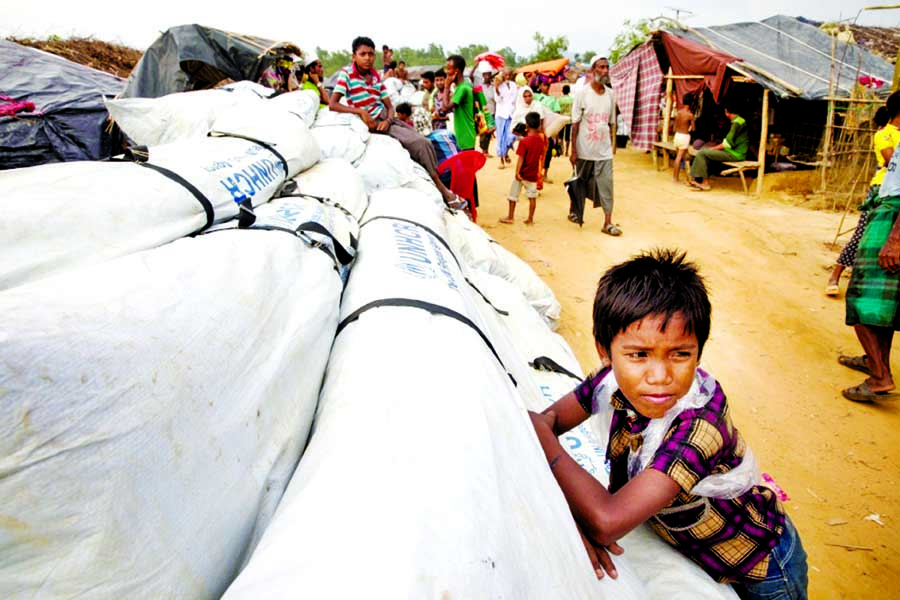
The office of the United Nations High Commissioner for Refugees (UNHCR) on Tuesday called for redoubling of the international humanitarian response in Bangladesh amid concerns that conditions of Rohingya refugees could deteriorate further.
An estimated 436,000 Rohingyas have arrived in Bangladesh in the last four weeks fleeing an army crackdown in Myanmar’s western Rakhine state that after reported attacks on security posts by armed insurgents.
“Rohingya refugees are still in need of food, shelter, clean water and medical care. Aid agencies are struggling to meet up their requirements due to inadequate relief supplies and healthcare services,” said UNHCR spokesperson Adrian Edwards.
Earlier, the UN High Commissioner for Refugees Filippo Grandi has called for more aid from international donors to mitigate the plight of the Rohingya refugees in Cox’s Bazar.
Meanwhile, the UNHCR has flown its fourth humanitarian airlift as part of its response to the Rohingya refugees.
The UNHCR-chartered Boeing 777 cargo jet, loaded with 100 metric tonnes of aid, landed in Dhaka Airport on Tuesday morning.
As shelter needs are acute in Cox’s Bazar refugee camps, this flight has been loaded with shelter materials only. Two more aid flights are being scheduled.
Despite every effort by those on the ground, the massive influx of people seeking safety has been outpacing capacities to respond, and the situation for these refugees has still not stabilized. Many of those who have arrived recently are deeply traumatized. Despite having found refuge in Bangladesh, they are still exposed to enormous hardship.
At the request of the Bangladesh authorities, UNHCR and our partners have scaled up protection and life-saving support to the new arrivals in Kutupalong and Nayapara camps, and extended this support to the informal settlements surrounding these camps. UNHCR is also distributing emergency shelter kits, kitchen sets, jerry cans, sleeping mats, solar lamps, and other non-food items, said Adrian Edwards.
“We continue to identify and support the most vulnerable refugees such as unaccompanied children, women, the elderly and disabled, who are in urgent need of shelter, food, water, and healthcare. In the last week, we along with partners distributed hygiene kits to some 1,900 women, while each day an average of 9,900 people received meals through community kitchens, 2,600 received other hot meals, and 4,700 received high energy biscuits. As the population in the Kutupalong and Nyapara camps have now doubled, so we are in needs for clean drinking water. In the last few weeks, we’ve installed additional seven deep tube-wells, 13 shallow tube-wells, and 116 latrine chambers in the two camps to help deal with this increase,” he said.

